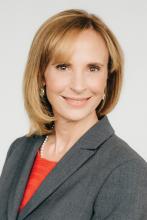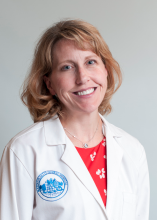Barbara Slawski, MD, MS, SFHM, and Cynthia Cooper, MD, hadn’t met in person until early 2018. But that doesn’t mean they haven’t spent a lot of time together.
Once a month, usually on a Friday afternoon, the two hospitalists checked in with one another through relaxed, wide-ranging phone calls. Together they have combed the medical literature and conferred over the past year, making long lists of candidate studies for the “top 20” journal articles of 2018 for practicing hospitalists.
The two physicians are preparing for the “Update in Hospital Medicine” session they will comoderate at HM18 – historically one of the most popular at SHM annual meetings – where the research findings of these “Top 20” articles are summarized for conference attendees. Their hope, they said, is to present research that each attendee can bring home to improve patient outcomes on a daily basis, while making for a smoother and more efficient practice of hospital medicine.
Dr. Slawski, chief of the section of perioperative medicine at the Medical College of Wisconsin in Milwaukee, said the presentations will not simply summarize study results, but also will help attendees focus on the key findings – the clinical pearls – that represent real opportunities to update practice.
Through a process each physician describes as collegial, Dr. Slawski and Dr. Cooper have winnowed their lists and are nearly ready to make their final calls. Since hospital medicine crosses so many disciplines, each physician said, in separate interviews, that doing justice to the literature has been time-consuming and intellectually challenging – but worthwhile.
Dr. Cooper, a hospitalist at Massachusetts General Hospital, Boston, said that although she and Dr. Slawski practice in geographically diverse areas, their practice settings – academic medical centers – have many similarities. She said that as she reviewed the medical literature over the past year, she gave considerable thought to the particular challenges and demands of hospitalists who practice in community hospitals and rural settings, where the level of support and access to subspecialty consults might be very different from the academic milieu where both she and Dr. Slawski practice.
“We hope that our unique approaches lend more breadth to the session,” said Dr. Slawski. “We want to make sure we have a good representation of SHM’s constituency, and that we present high-impact studies.”
In addition to her work at Mass General, Dr. Cooper also holds an appointment at Harvard Medical School. She said that the challenge over the past year has been to find the studies that are not focused just on primary care, but that really touch on the unique practice demands and skill set of physicians who practice hospital-based medicine.
Dr. Slawski said that cardiology is one of the areas that’s had relevant, practice-changing findings this past year: She expects to put at least one practice-changing cardiology article on the “Top 20” list. “How do we address patients with suspected acute coronary syndromes? Well, we have some new direction this year,” she said.
To hit the mark of articles that are relevant for all, Dr. Cooper said she wants to make sure to include a focus on research that touches on the practicalities of hospital-based practice – possible topics include prediction scores, hepatic encephalopathy, and the management of sepsis.
Dr. Slawski said that in addition to relevance, she and Dr. Cooper looked for methodological rigor in the studies they’ll be presenting; they agreed that having an adequate sample size for statistical power was a must.
The two presenters said they’re working hard to put together a session that’s as enjoyable as it is relevant. “I hope we’ll be able to inject some humor into the presentation, too,” Dr. Cooper said. Dr. Slawski agreed, noting that the bar has been set high at SHM. “It feels like a community,” she said. “There are always great speakers with a sense of humor.”
Dr. Slawski stressed that even though they’ll have their list ready to go for HM18, they will still be scouring journals until the week of the meeting so they can update their presentation with any late-breaking news of significance.
Neither Dr. Slawski nor Dr. Cooper reported any relevant conflicts of interest.
© Frontline Medical Communications 2018-2021. Reprinted with permission, all rights reserved.

